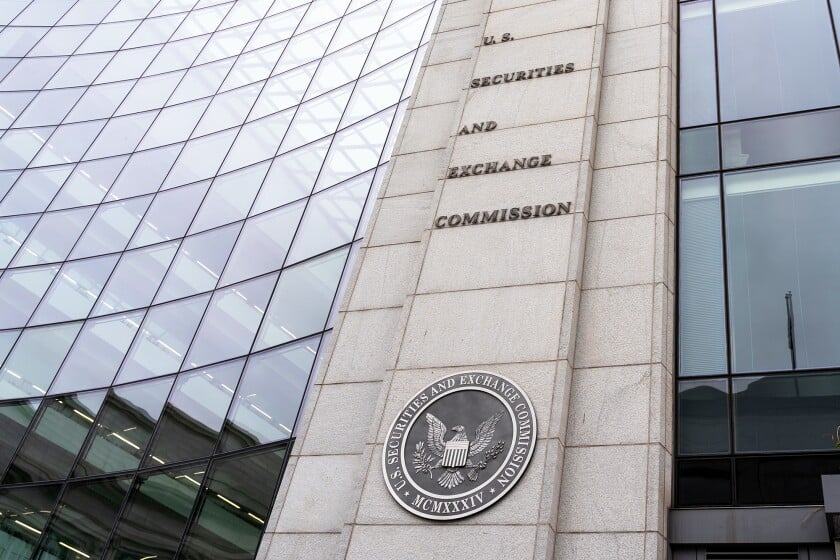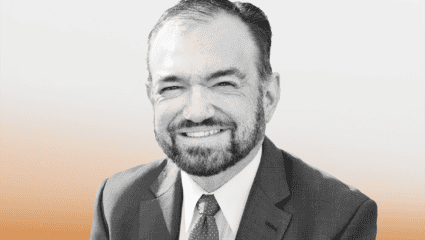
Amid the hundreds of comment letters the SEC received applauding draft regulations seeking to require faster public disclosure by activist hedge funds, Elliott Management Corp., has emerged as a top detractor of the rules and a study the agency issued that appears to support the commission’s case.
The study uses “pejorative” language and employs a database “riddled with errors,” wrote Paul Singer’s activist fund in a detailed letter opposing the measure. It also fails to evaluate real costs of seeking to protect shareholders who sell shares before an activist campaign materializes, added Richard Zabel, Elliott’s general counsel, in a June 27 letter.
At issue is a measure initially proposed by the U.S. Securities and Exchange Commission in 2020 to require an activist to disclose their position in a Schedule 13D filing within five days of owning more than 5% of a company, rather than the current 10-day requirement. While the measure had faded into obscurity, in April, the agency reopened the debate — and the comment period — with a report seemingly intended to bolster the provision.
The SEC study appears to support a thesis posed by activist investor critics: That existing rules hurt rank-and-file investors who sell shares at arguably discounted prices to activists and other investors in the know before the activist discloses their campaign, a move that often results in share-price spikes. The Deal reviewed a large cross-section of letters and most, including corporate and retail lobbyists, supported faster disclosure as a means of helping out small investors who, in the words of one supporter, are disadvantaged by “information asymmetry.”
Elliott, one of the most prolific activist investors in the U.S. and globally, however, sought to eliminate the perception that an activist fund’s accumulations should be considered differently from other investor purchases. It noted that any investor that develops a view about the prospective fortunes of a public company may seek to privately acquire shares while other investors aren’t aware of its analysis.
“Taken to its logical extreme, the only way to address this ‘information asymmetry’ would be to compel every investor to make public all of its research regarding a given company prior to trading,” Zabel added.
Elliott, however, took issue with a term employed frequently in the study, “opportunistic trader,” arguing that it was a derogatory label associated with trading on information that is not known to the market.
It also raised concerns about the study’s employment of FactSet Research System Inc.’s “SharkWatch 50″ list to identify prominent activists for the study.
The list, for instance, lists zero assets for Elliott, and two other prominent activists, TCI Fund Management Ltd. and Carl Icahn, which “is obviously incorrect,” Zabel wrote, adding 14 of the list’s constituents are no longer in operation, or haven’t engaged in activism for at least four years. Sandell Asset Management and Marcato Capital, two members of the SharkWatch 50, were closed in 2019, The Deal previously reported.
The SEC didn’t respond to a request for comment.
Zabel also suggested that the 13D disclosure proposal conflicts with SEC rules for hostile bidders.
If a hostile bidder is considering a tender offer, there will be a period of time when the target and market won’t be aware of its accumulation, Zabel said. “There is no suggestion that this situation constitutes an ‘information asymmetry’ warranting regulatory intervention,” he added.
Meanwhile, Zabel also suggested that the disclosure measures contradict the agency’s regime for short sellers, noting that a short seller may take a large short position and be prepared to release a report that could move the stock price massively but is not required to disclose its accumulations because of a “supposed information asymmetry.”
Even so, the regulatory regime for short-selling may soon change. The SEC introduced a proposal in February that would require fund managers to publicly publish aggregate gross short position data 14 days after the end of each month if their stakes exceeded $10 million or were equivalent to 2.5% of outstanding equity shares. Based on the measure, short seller insurgents wouldn’t need to disclose the names of their targeted companies. Zabel argued that the SEC believes that while “the confidentiality of short sellers should be protected, activists are not entitled to similar protection” even though their proprietary trading strategies carry similar value.
The 13D reporting initiative and a related derivatives disclosure proposal run counter to the approach the SEC is taking with its short seller disclosure effort, Sullivan & Cromwell LLP partner Colin D. Lloyd said.
The first two measures require public disclosure of individual positions, he said, while the short seller measure only requires private disclosure to the SEC of particular short positions and monthly aggregate public disclosure of industrywide positions in a particular company, with a delay.
“Why would you require public disclosure of individual counterparty positions in equity swaps but decide that it was a bad idea to disclose particular short positions publicly?” he asked. “The right result is for the SEC to collect relevant data privately and study the information, and to the extent they think there is some value to sharing any of it with the market, it should be done in an appropriately aggregated, anonymized and delayed way.”
Editor’s note: The original, full version of this article on activist disclosures was published July 14, 2023, on The Deal’s premium subscription website. For access, log in to TheDeal.com or use the form below to request a free trial.
This Content is Only for The Deal Subscribers
If you’re already a subscriber, log in to view this article here.



